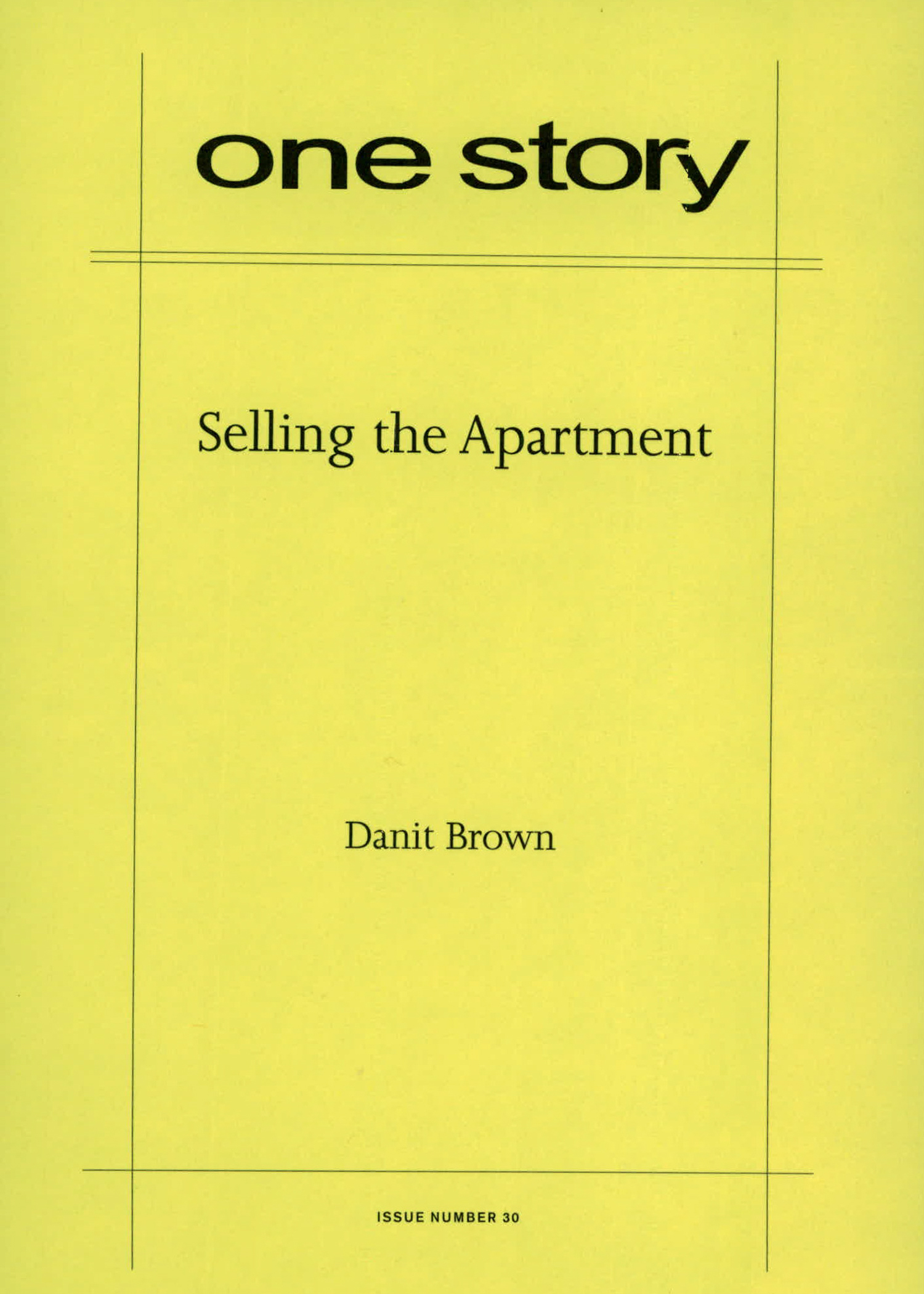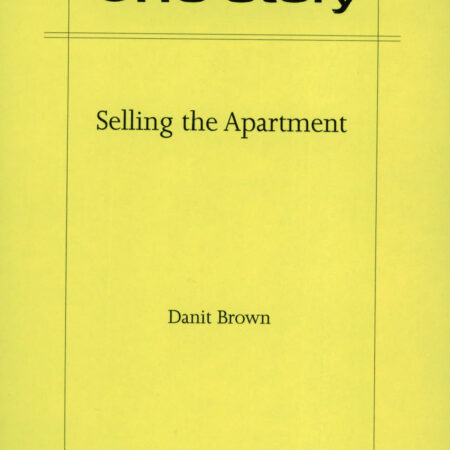
Selling the Apartment
$2.50
27 in stock
Excerpt
Your parents’ friends, when they hit sixty, will begin moving south in couples: one to North Carolina, another to Florida, a third to Texas. At Rosh Hashanah you’ll be down to ten. Hanukah eight. Purim four. Finally, one Passover, it will be just you and your parents. You will sit across from them in the dining room, eating gefilte fish by candlelight, and promise yourself you will marry into a large family. You’ll start dating Catholics exclusively, thick-limbed brawny men with good Biblical names who are one of thirteen siblings. Their parents will veto you every time. One father will call you The Jewess. Your parents, relieved, will suggest speed dating at the local JCC, and you will find yourself actually considering going. Then the phone will ringit will be your mother’s sister from Israel, calling to wish her a happy holiday, shouting over the din of crying babies and someone plinking the Four Questions on the piano—and your mother will look so sad that you will fantasize about running away—spending holidays by yourself eating turkey and mashed potatoes at the Big Boy—running away (like a teenager!) even though you’re thirty and have just finished paying off your student loans.
Danit Brown
Danit Brown’s stories have appeared or are forthcoming in Glimmer Train, Story, Indiana Review, and The Seattle Review. She is working on her M.F.A. at Indiana University, where she is Editor of Indiana Review. “Selling the Apartment” is part of a nearly-completed collection of connected short stories about leaving Israel.
Q&A by Hannah Tinti
- HT: Where did the idea for this story come from?
- DB: This story is very loosely based on real events: I was living in my parents’ apartment in Tel-Aviv and had to sell it. The rest of it—the aging parents, the desire to leave a mark—came after I started writing, when I realized I didn’t really have a plot.
- HT: What was the most challenging aspect of writing this story?
- DB: The hardest part was figuring out the right amount of narrative distance. First person and third person seemed too particular and constricting, and I worried that the pity this narrator feels for herself would overwhelm the story. The second person future, for me, worked as a distancing device. It made the situation seem more hypothetical, and—I hope—more urgent, like a warning.
- HT: Have you ever lived in Israel?
- DB: I was born there and lived there until I was ten. Then I lived there as an adult for four years.
- HT: When writing this, did you intend to compare the internal struggle of leaving the homeland to leaving one’s parents?
- DB: I didn’t, and I’m not sure if I see that even now. For me, I think the story is more about figuring out which are the true things that bind you to a place. So for this narrator, the struggle doesn’t have so much to do with leaving her homeland as with figuring out that homeland isn’t enough.
- HT: Why is it so important for the narrator to leave her mark on the apartment?
- DB: For the narrator and her family, the apartment served as a kind of anchor to Israel, as proof that they’re real Israelis as opposed to Israelis who left and just talk about returning. I think the narrator hopes the mark will somehow legitimize her Israeliness.
- HT: What happens to her, emotionally, when she discovers the ruined towels in her parents’ bedroom?
- DB: I think she realizes that she’s been focusing on the wrong things, that place and leaving a mark aren’t what’s truly important, and that in staying so focused on those things she didn’t notice this trap—her parents’ aging—closing in around her. She thought the hard part was over, when actually it turns out that it’s only beginning.
- HT: How long did it take you to complete this story?
- DB: Once I figured out the point of view and the beginning, it took about a week. Before that, there was a lot of whining and hand wringing, which took considerably longer.
- HT: What is the best bit of advice about writing you have ever received?
- DB: In college, a professor told me that Grace Paley only works with people who have written more than a thousand pages. I don’t know if that’s actually true, but I like the way it frees you up and gives you something to shoot for: a thousand pages of crap before you should even expect to write something decent.
- HT: What are you working on now?
- DB: I’m finishing up a collection of linked short stories about this narrator and her family, and their relationship to Israel.
